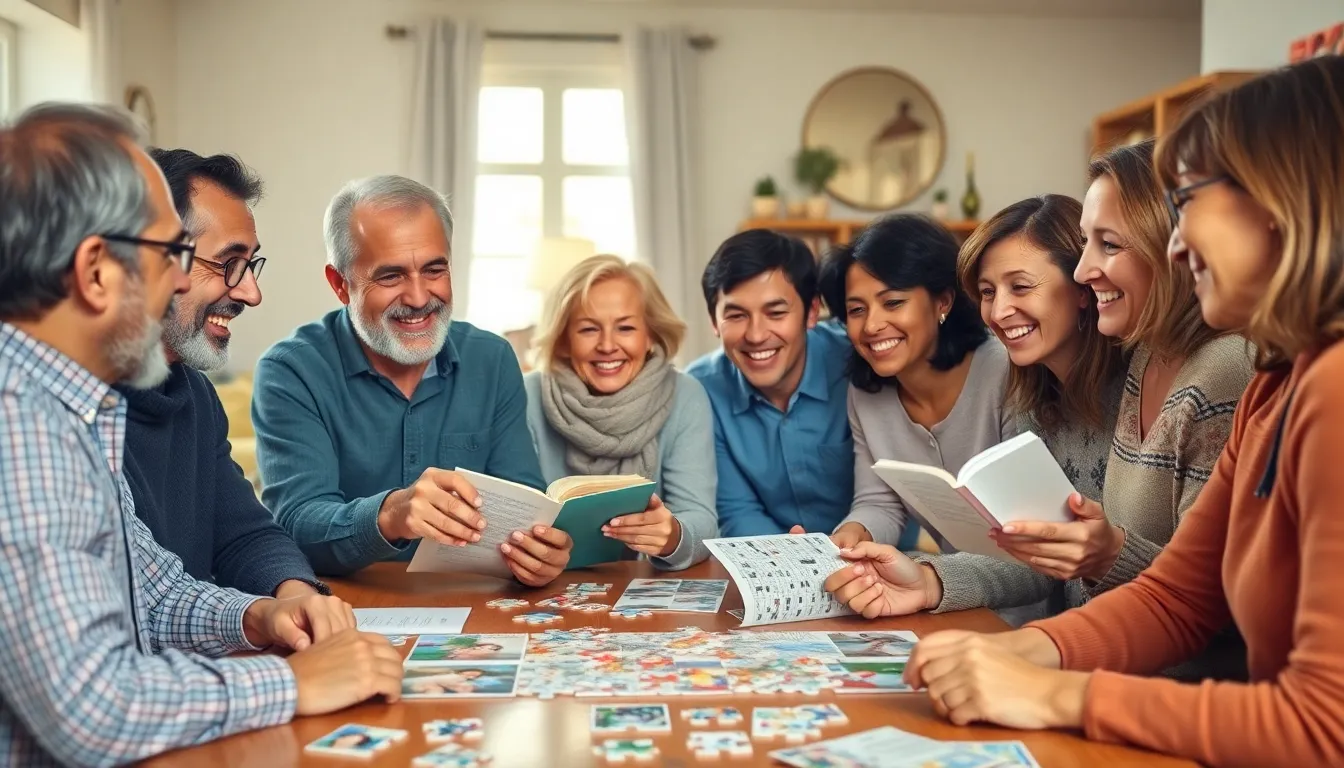Looking to give your brain a workout while having a bit of fun? Brain teasers are the perfect solution. They challenge your thinking, spark your creativity, and might even make you the trivia champion at your next gathering. Who knew exercising your mind could be this entertaining?
Best Brain Teasers
Brain teasers represent puzzles designed to stimulate thought. These challenges engage critical and creative thinking, motivating individuals to explore their cognitive abilities.
Definition and Purpose
Brain teasers are riddles, logic puzzles, or lateral thinking problems. They encourage participants to find innovative solutions or think outside the box. The purpose of these puzzles is to sharpen mental acuity, enhance problem-solving skills, and promote intellectual engagement. Activities that include brain teasers often create enjoyable environments for learning and social interaction.
Benefits of Solving Brain Teasers
Solving brain teasers offers numerous advantages. They provide mental exercise, which can improve memory, increase focus, and boost cognitive performance. Engaging with these puzzles also fosters creativity by encouraging divergent thinking. Furthermore, brain teasers help individuals develop patience and perseverance, vital traits when facing complex problems. They’re perfect for social gatherings, as sharing solutions can spark conversations and encourage teamwork.
Types of Brain Teasers

Various types of brain teasers exist, each catering to different cognitive challenges. Engaging with them enhances mental agility and encourages creative thought processes.
Riddles
Riddles pose intriguing questions that require clever thinking for solutions. These concise puzzles often incorporate wordplay and can range from simple to highly complex. Classic examples include those that play with double meanings or descriptions. Solvers must analyze language carefully to grasp hints woven into the text. This form of brain teaser sharpens critical thinking skills and encourages players to think outside the box. Additionally, riddles serve as excellent icebreakers in social situations, prompting laughter and discussion.
Puzzles
Puzzles often involve physical elements, such as jigsaw pieces or Sudoku grids. Completing these tasks requires logical reasoning and spatial awareness. Many people enjoy crossword puzzles, which combine vocabulary with deductive skills. Problem solvers analyze clues and fit answers into specific spaces. Engaging with puzzles fosters persistence and enhances problem-solving abilities over time. Their diverse formats make them accessible to different age groups and skill levels, promoting communal experiences in both competitive and cooperative settings.
Logical Challenges
Logical challenges focus on reasoning and deduction, emphasizing structured thinking. Examples include math problems and strategy games like chess. These challenges require players to identify patterns and draw conclusions based on given information. Engaging with logical challenges improves analytical skills and sharpens one’s ability to tackle complex situations. Individuals often encounter these challenges in various forms, from escape room scenarios to online games. They stimulate the mind and encourage a systematic approach to problem-solving, making them popular among enthusiasts of critical thinking.
Best Brain Teasers
Engaging with brain teasers can provide adults with mental stimulation and social interaction opportunities. The following sections explore classic riddles and mind-bending puzzles that challenge thinking and enhance cognitive skills.
Classic Riddles
Classic riddles engage critical thinking and often incorporate clever wordplay. Examples include:
-
- What gets wetter as it dries? Answer: A towel.
-
- I speak without a mouth and hear without ears. What am I? Answer: An echo.
-
- The more you take, the more you leave behind. What are they? Answer: Footsteps.
Solving these riddles promotes quick thinking and offers an enjoyable way to spark conversations at social gatherings.
Mind-Bending Puzzles
Mind-bending puzzles, such as Sudoku and logic grid puzzles, challenge analytical skills and strategic thinking. Popular examples consist of:
-
- Sudoku: Fill a 9×9 grid where each row, column, and 3×3 subgrid contains numbers from 1 to 9 without repetition.
-
- Logic Grid Puzzle: Use deductive reasoning to match various categories based on provided clues.
-
- Journey Puzzles: Determine the best routes or outcomes, often introducing unique challenges.
These puzzles sharpen focus, enhance problem-solving abilities, and deepen cognitive engagement, making them ideal for individual or group challenges.
Best Brain Teasers for Kids
Brain teasers for kids encourage critical thinking and creativity while providing a fun challenge. These activities stimulate young minds, making learning enjoyable and interactive.
Fun and Engaging Riddles
Riddles engage children’s curiosity and promote logical thinking. An example is “What has keys but can’t open locks?” which prompts kids to think creatively to find the answer, “a piano.” Many riddles involve playful language, sparking laughter and conversation among peers. “I’m tall when I’m young, and I’m short when I’m old. What am I?” is another that challenges them to think outside the box, leading to the answer, “a candle.” Riddles enhance vocabulary and critical thinking skills, making them ideal tools for learning in a lighthearted manner.
Educational Puzzles
Puzzles serve as excellent educational tools, reinforcing problem-solving skills and spatial awareness. Jigsaw puzzles allow kids to develop strategic thinking as they identify where pieces fit together. Logic puzzles, like Sudoku tailored for children, build numerical reasoning and enhance concentration. Crossword puzzles introduce vocabulary while encouraging children to think about word relationships. These educational puzzles engage children in active learning while fostering teamwork when done in groups or with family members. Emphasizing cooperation through puzzles creates a sense of achievement and enhances social skills.
Tips for Solving Brain Teasers
Solving brain teasers requires a combination of strategy and skill. Applying the right techniques can enhance problem-solving abilities effectively.
Strategies to Improve Your Skills
Practice consistently helps sharpen critical thinking. Familiarizing oneself with various types of brain teasers increases adaptability. Engaging in discussions with peers fosters different perspectives. Breaking complex problems into smaller steps simplifies the solution process. Written notes can capture thoughts and provide clarity during problem-solving. Utilizing online resources offers access to a diverse range of puzzles.
Common Mistakes to Avoid
Rushing through a teaser often leads to overlooking crucial details. Ignoring instructions can result in misunderstandings and incorrect answers. Overthinking sometimes complicates what could be simpler solutions. Not considering multiple angles limits creative problem-solving approaches. Neglecting to take breaks may lead to mental fatigue. Reflecting on past solutions can reinforce learning and improve future performance.
Conclusion
Brain teasers offer a unique blend of fun and mental stimulation that benefits individuals of all ages. They not only enhance cognitive skills but also foster creativity and teamwork. By engaging with these puzzles, people can sharpen their critical thinking and problem-solving abilities while enjoying social interactions.
Whether through classic riddles or challenging logic puzzles, brain teasers create an environment that encourages learning and collaboration. Adopting these engaging activities into daily routines can lead to improved memory and focus. Embracing the challenge of brain teasers is a rewarding way to keep the mind sharp and agile.

